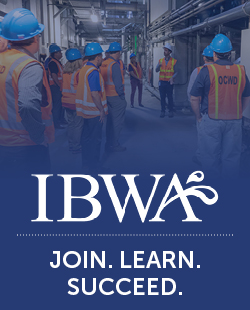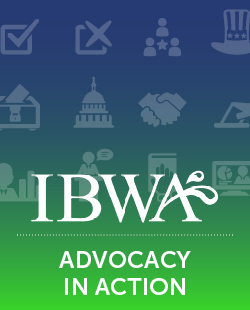Bottled Water Taxation
Bottled Water Taxation
Policy Statement
The International Bottled Water Association (IBWA) is dedicated to providing quality, safe, and convenient bottled water for consumers. IBWA supports tax policies that promote bottled water job development, business investment in communities, and the development of bottled water resources. IBWA opposes all taxes, surcharges, fees, and levies specifically targeted against bottled water.
Background
Water is an essential part of everyone’s daily diet. People are drinking bottled water because of a trend toward healthier lifestyles and the desire for safe, consistent quality beverages. The convenience, consistent safety, and quality of bottled water provide consumers with a choice for their hydration needs.
Under Federal law, bottled water is classified as a food product. The Food and Drug Administration (FDA) regulates bottled water as a food product through the establishment of good manufacturing requirements, standards of identity by which manufacturers can label their products, and standards of quality that must be no less stringent than the Federal standards for public drinking water. In addition, bottled water is also subject to the labeling, recall and other food product requirements by FDA. As further reinforcement to the classification as a food product, bottled water is an eligible food product under the Federal food stamp program.
States also regulate bottled water from source approval to production and sale of the finished product. The states that have sales taxes with exemptions for food also include bottled water within the food exemption. For example, in 1994, the Wisconsin Tax Appeals Commission reversed a determination by the Wisconsin Department of Revenue that bottled water was a taxable item. The Commission concluded that bottled water was exempt from the state’s sales and use tax. In its written opinion, the Commission subsequently said:
“Common sense leads us to the conclusion that the legislature did not intend to exempt beverages like milk and juice, which we can survive without, and not water, which we cannot survive without.”
Bottled water is produced for human consumption, which is the highest and best use of water.
The elderly, infants, chemotherapy and transplant patients, and those with HIV and AIDS often depend on bottled water as their only source of drinking water.
Bottled water also plays a significant role during emergency situations. When disaster strikes, consumers depend on bottled water. It is common to see store shelves cleared of bottled water, and bottled water companies routinely help those in need with donated product or supply product at cost. During the aftermath of the September 11, 2001, tragedy, bottled water companies donated over two million bottles of water to the rescue workers and emergency personnel at the World Trade Center, Pentagon, and Pennsylvania sites.
Targeting bottled water for taxation places an undue burden on a food product upon which many rely for their daily hydration needs. As indicated, those with suppressed immune systems or victims of disasters will be unfairly asked to bear the costs of a discriminatory tax.
The revenue gained must be balanced against the cost of collection and administration. Bottled water is often sold and delivered directly to consumers’ offices and homes. It is also sold in retail stores, vending machines, and various other venues such as sport facilities, amusement centers, etc. As a small specialty niche within the $500 billion food industry, the bottled water industry generates nationally less than $7 billion in sales.
The primary ingredient of bottled water is either groundwater or water from a public water system. The water is processed by a multi-barrier system and is subject to government standards of quality no less stringent than those established for public drinking water. Water withdrawals for bottled water production are insignificant in comparison to the water needed for the production of other products. In New Hampshire, one of the few states with publicly available data on groundwater withdrawals, the entire bottled water industry combined is tenth among the non-public water system, large quantity withdrawals in the state. In fact, bottled water represented 1.78% of the total non-public water system, large withdrawals. New Hampshire law only requires reporting of withdrawals of more than 56,700 gallons/day. When compared to the total large withdrawals, including the public water systems, bottled water represents less than 0.6% of the groundwater withdrawals
Groundwater is a renewable natural resource that must be properly managed to sustain its use for the next generations. IBWA is on the forefront of advocating for sound groundwater resource management. The IBWA Groundwater Resource Management policy paper sets out the basic principles, including that management must be based on sound science, equitable treatment of all users, and a multi-jurisdictional approach. As with the management of groundwater, any levies, fees, taxes, or surcharges associated with either groundwater withdrawals or the consumptive use of groundwater must be applied equitably to all users.
Guiding Principles of Tax Policy
IBWA believes that the following set of principles is essential in addressing tax policy relative to the bottled water industry. Broad based taxes, rather than industry or product specific taxes, are a more stable and thus more predictable source of government funding.
Bottled Water is a Necessary Food, Not a Luxury – Bottled water is a regulated food product and provides a critical element to a healthy diet for many people. As with all essential food products, bottled water is covered under the food stamp program and included as a food product within a sales and use tax exemption for food. For some, they have come to depend on bottled water’s quality, consistency, and safety record as their principle source of drinking water.
Taxes Should Be Broad Based and Fair – The purpose of tax policy should be to encourage economic development while raising the revenue necessary to fund necessary government programs and services. The bottled water industry is willing to fund its fair share of taxes, along with the rest of the business community. However, taxes that target only bottled water are unlikely to be a substantial or stable source of revenue for government funding and inherently unfair.
Bottled Water Taxes are Regressive – Government should not place tax burdens on those who are the most vulnerable and need bottled water. Bottled water taxes will have a disproportionate impact on the lower income people who must use bottled water as their source of drinking water. Persons with compromised immune systems, the elderly, and infants often depend on bottled water as their only source of drinking water. Bottled water also plays a significant role during emergency situations. When disaster strikes, consumers depend on bottled water.
Bottled Water is the Highest and Best Use of Water – Bottled water is intended exclusively for human consumption. This is often referred to as the highest and best use of water. As the trend continues toward healthier lifestyles and the desire for a safe, consistent quality beverage, more and more people are turning to bottled water as their drink of choice.
Conclusion
IBWA’s position on various proposals for government regulation will be based on the above set of principles and the equitable treatment of the bottled water industry in overall tax policy. IBWA believes that only through broad based taxes can government establish a stable, predictable source of revenue for funding programs and services for citizens. IBWA supports measures that treat all taxpayers equitably. In addition, IBWA will support taxes that promote bottled water job development, business investment in communities, and the development of bottled water resources.


